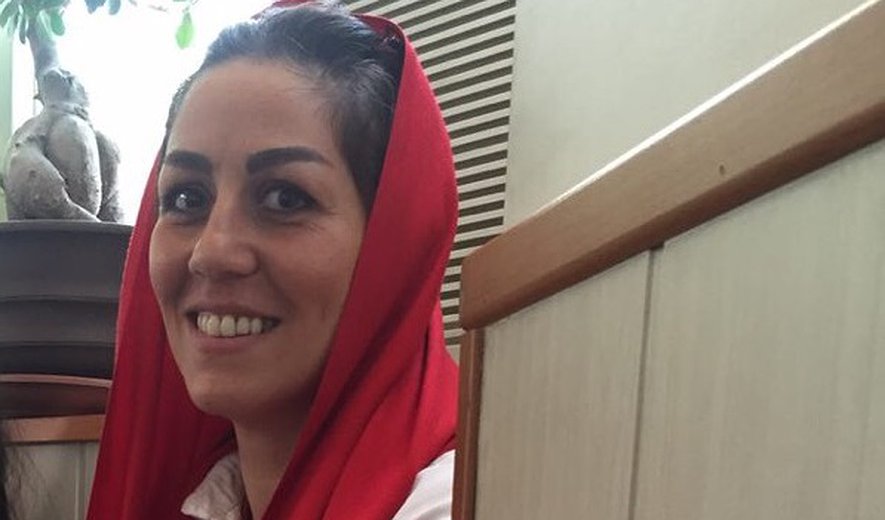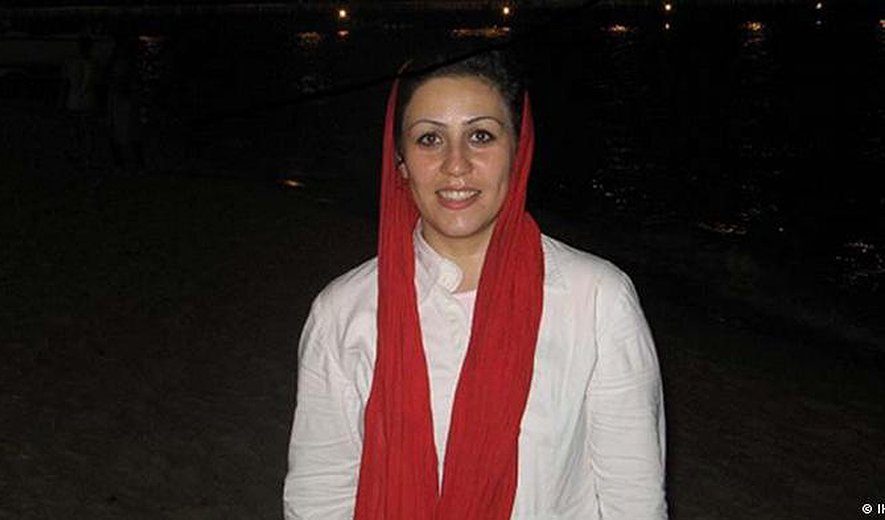Maryam Akbari-Monfared Banned from Visitation Rights for 3 Months

Iran Human Rights (IHRNGO); August 31, 2022: Human rights defender Maryam Akbari-Monfared has been banned from visitation rights for three months after being beaten and strangled when daughters refused to wear prison chadors.
According to information obtained by Iran Human Rights, Maryam Akbari-Monfared was informed by Semnan Prison officials yesterday that her visitation rights had been removed for three months. The ban was imposed after an incident on August 24 when Maryam was physically and verbally assaulted and strangled for protesting the cancellation of her family visit because her daughters would not wear prison chadors.
On that day, the police were summoned and Maryam and her husband were threatened with charges of “disrupting prison order before the warden stepped in.
Speaking to Iran Human Rights, an informed source said: “She was informed of the sentence without a disciplinary council being formed and without the violations in question being specified. Maryam has been banned from visitation rights while she’s already banned form phone calls other prisoners enjoy, she has to make her calls in the presence of prison officials.”
In July, just two days after a Swedish court sentenced Hamid Noury, a judicial official, former IRGC member and assistant to the deputy prosecutor at Gohardasht Prison during the 1988 massacre of political prisoners, to life imprisonment, Maryam was informed that she was facing new charges of “propaganda against the system.”
Maryam Akbari-Monfared was arrested following the 2009 nationwide protests at her home on 31 December 2009. She was sentenced to 15 years imprisonment for moharebeh (enmity against god) and acting against national security by Branch 15 of the Tehran Revolutionary Court for a phone call from her dissident sibling in May 2010.
On 15 October 2016, she filed an official complaint from behind bars for an investigation into the execution of her siblings in the summer of 1988. In an open letter, she discussed the killings of her four siblings and the pressure her family had endured in the subsequent years. Her complaint was rejected by the judiciary and she was warned that such petitions would exacerbate her situation and prevent her release.
At trial, she was told by the judge that "she was paying for the activities of her brother and sister." Undeterred, she sent another complaint two weeks later. She wrote: “I, Maryam Akbari-Monfared, demand investigations into the unlawful execution of my sister and brother and disclosure of the details including the identities of those responsible for their deaths, acquisition of their charges and other documents in their files and inquiry into applicable relevant laws, in particular Article 34 of the constitution that recognises seeking justice as the inalienable right of every individual.”
Maryam Akbari Monfared has been demanding justice for her siblings, 25-year-old Abdolreza who was arrested at 17 and executed in the 1988 massacre, 20-year-old Alireza who was executed by firing squad at 20, her sister 30-year-old Roghieh who had a 3 year old daughter at the time of her arrest and also executed in the 1988 massacre, and her 29-year-old brother Gholamreza who was killed under torture in 1985. Following the execution of her children in the 1988 massacre, Maryam’s mother, Gorji Bashiripour suffered a stroke and passed away without ever finding out where her children were buried.
The United Nations Working Group on Enforced or Involuntary Disappearances recognised Abdolreza and Roghieh’s as forcibly disappeared and the requested that the Islamic Republic disclose their fate and place and burial.


